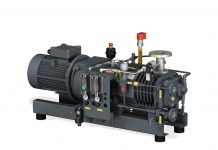In the second of this series of articles, Dr Chris Moore will discuss some of the largest patent court cases to have been decided this year in the chemistry space and provide some thoughts as to the future.
The first months of this year have seen some important patent cases come before the UK courts. As is usual, the battle ground pits big pharma patent holders against generics manufacturers seeking to clear a path before patent expiry.
Firstly, Glenmark Generics (represented by HGF Law) successfully revoked Wellcome’s patent for anti-malarial drug Malarone. Permission to appeal has been rejected by the trial judge but Wellcome may yet have another day in Court.
Secondly, Hospira AG successfully revoked Novartis AG’s patent for Zelondrate, useful in the treatment of osteoporosis. This decision has generated some discussion amongst patent professionals because it may impact how first and subsequent applications are drafted (for claiming priority). Given the amount of lost sales that this decision might bring about, it would not surprise if Novartis appeal in due course.
Thirdly, AstraZeneca AB lost their appeal against an earlier ruling that their patent covering their Seroquel XL product is invalid. The case was won by German company Hexal AG, together with other generics manufacturers, and so patients can expect to see a reduction in the price for sustained-release quetiapine medicines.
The last of these cases is notable because it highlights how the courts in different EU states can arrive at divergent decisions. In parallel proceedings, the Dutch court has found the corresponding patent valid whereas the German Federal Court has arrived at the same conclusion as their British counterparts.
Divergent rulings such as these are likely to make large companies think twice about using the recently announced Unified Patents Court (UPC). Under the UPC scheme a patent will live or die as a sole entity, meaning litigation is risky for patent holders in a winner-takes-all final showdown! As has been seen with the Seroquel XL cases, courts in different countries can arrive at contradictory decisions. For patent holders this means that not all will be lost if one of a family of patents is revoked and for proposed entrants it is more expensive to clear the path throughout the whole of Europe.
In the circumstances, it may well be that larger companies opt out of the unified patent system and/or alter their patent filing strategies to move to national rather than European patent filings for key IP assets. Accordingly, I expect that patent filings at the UKIPO will increase over the next few years because of the uncertainty of the UPC system and because of the benefits of the UK Government’ recently-introduced Patent Box scheme (see www.hgf.com for further details).
Dr. Chris Moore (cmoore@hgf.com) is a partner with Harrison Goddard Foote LLP specialising in chemistry and materials. He represents clients from the UK and abroad and has been consistently top ranked by attorney rating agencies.
©Harrison Goddard Foote LLP 2013













